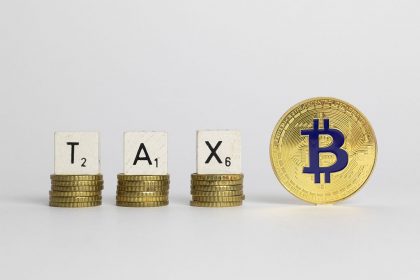Bitcoin has become a major buzzword in financial and investment circles in recent years, and with good reason too. Increasingly, people are trading in, or employees are being paid in cyber-currencies, of which Bitcoin is the most famous, and of course this has caught the attention of tax authorities, most notably the IRS in the United States.
If you are dealing in virtual money, therefore, it is imperative that you understand the tax implications of these currencies.
As an Employer or Employee
If you are an employer making payments in virtual currencies, it is imperative that you declare these payments to the relevant tax authority. In the United States, the IRS requires all employers making payments in this way (in salary or bonus payments) on W-2 forms.
As Bitcoin has a real-world equivalent value, you must state the amount that was paid (in US dollars) and the date of any transaction. This is very much in-line with classic payments, and so does not involve anything different. Similarly, if you are self-employed and are trading for goods and services in virtual currencies, you must also declare these earnings along with the dates of any transactions.
“From an employee perspective, you must also keep vigilant records, and you should also understand how taxes on virtual currencies work, as they are not the same as taxes on fiat currencies,” advises Martha Cartwright, an accountant at Writemyx and Nextcoursework.
Crypto as an Asset
Please be aware that Bitcoin or any other virtual currency held as a capital asset is rated by tax authorities in the same way as property. In essence, that means that crypto is treated in the same way as any other bond or asset that someone holds as part of their capital portfolio.
Buying and selling virtual currencies, and making exchanges
The key element as in any tax calculation is to ensure that you keep a record. This begins when you covert any fiat money into virtual currencies, because this establishes the original value.
From here, keep detailed records of any transactions you make, whether that is buying or selling, and of course any exchanges back into fiat money. Most trading platforms allow for detailed records of these transactions, but ensure that you keep up-to-date with these, or you have a combined record if you are using multiple platforms.
Trading
Just like in non-virtual currency trading, you will have to declare any gains made from trading virtual currencies. There is a basic formula which you can use the calculate any capital gain or loss, which is as follows:
Fair market value – Cost basis = Capital Gain / Loss
This is an easy enough number to calculate, but will, of course, be complicated by multiple transactions across multiple platforms. Fair market value is what your currency was worth on the open market on the day of the transaction, while cost basis is the amount it cost you to make that transaction.
“If you do not have details of your transactions and the costs involved, most if not all platforms will allow you to access your historical records to calculate them. You may also be pleased to know that there is also crypto software out there which can assist you in this task,” says Terry Couzins, a project manager at Britstudent and Australia2write.
Report Your Losses to Save Money
If you have made capital losses on any of your trades, this is important as you can use these losses to offset the tax on your gains. In fact, you can offset losses made on crypto against gains made in other types of investments too, so having detailed records of these losses, as well as the gains, is really beneficial to you.
A lot of people do not think that declaring losses is necessary for a tax return because they have not made any money, so this is a detail that is often overlooked.
Mining
Virtual currency ‘miners’ be aware that tax authorities also regard any money made from this activity be included in any gross income earnings. To calculate the amount, you must use the fair market value of that currency on the day it was received.
Consult a crypto tax specialist. There now exist accountants specializing in crypto transactions, so if in any doubt, consult a professional.
Disclaimer: Coinspeaker is committed to providing unbiased and transparent reporting. This article aims to deliver accurate and timely information but should not be taken as financial or investment advice. Since market conditions can change rapidly, we encourage you to verify information on your own and consult with a professional before making any decisions based on this content.

Katrina Hatchett is a lifestyle blogger at Academic Brits with a particular interest in the art of communication. She is a regular writing contributor at Origin Writings, as well as a blogger at PhDKingdom.





